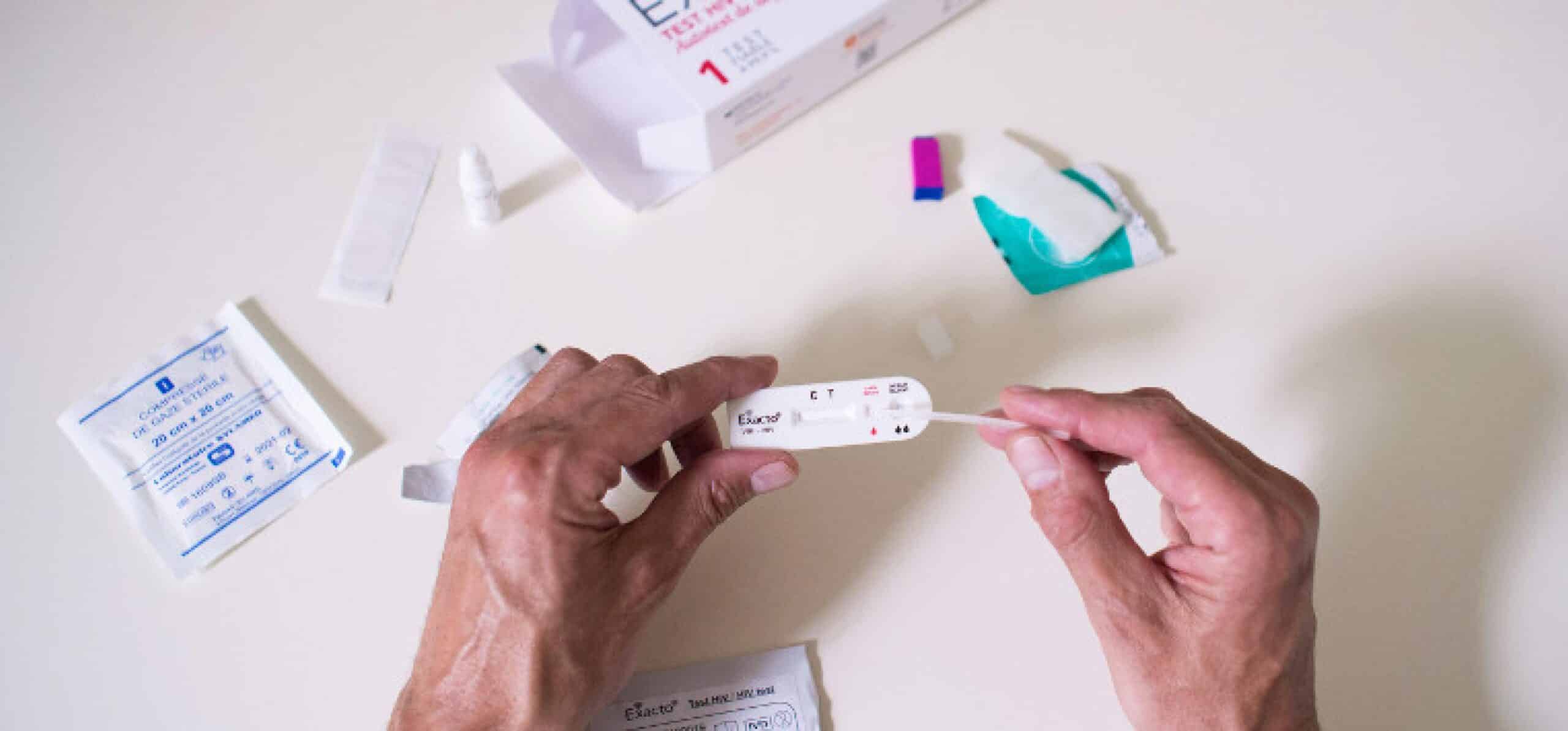Working life: What's next for HIV testing on the job?
The German Aids Federation would like to abolish compulsory HIV tests in professional life. It describes corresponding demands as "inadmissible". For those affected, it is discriminatory to have to undergo these tests again and again. So far, the tests are still mandatory in certain professions, such as the police.
Sometimes the test results are also required as part of the application process. If an applicant then presents a positive test, he or she may be rejected. HIV positive people who want to study in the medical field are also often "sorted out" in this way.
In this context, the German Aids Federation emphasizes that people are repeatedly discriminated against, even though people infected with HIV are actually allowed to work in the relevant professions. One of the reasons for this is that the HI virus cannot be transmitted in everyday working life. At the same time, due to modern medicine, there is no need to fear any restriction in performance.

Many people in health professions affected
The representatives of the German Aids Federation make it clear that it is mainly people who work in the healthcare sector (or who want to work here) who are affected by discrimination. However, the fact that they are HIV positive is usually irrelevant with regard to their job.
The only exception would be surgeons, as there is a risk of injury during some procedures. Here it is important that the virus is no longer detectable in the blood.
A general exclusion of HIV positive people from application processes and from areas of working life would violate the Equal Treatment Act. The German Aids Federation is therefore calling for a ban on HIV tests and would also like to prevent general questions being asked about whether a person is HIV positive.
Otherwise, people would not only be restricted in their career plans (and thus often also financially), but also psychologically.
Why are so many professions asking about possible HIV infection?
There are still many prejudices surrounding the HI virus and its transmission. Many people are afraid of becoming infected - even in areas where this is not or almost not possible. The German Aids Federation refers to scientific results that prove that HIV is virtually no longer transmissible today on the basis of a reliable therapy. Accordingly, it is important to say goodbye to "irrational fears".
How can those affected defend themselves now, if necessary?
Whether a person defends himself against this kind of discrimination often depends on his personal character. However, a look at past verdicts on relevant disputes shows that it was mostly the HIV positive people who got justice in court.
Unfortunately, however, there is still no "standard solution" in this context. Whether or not a plaintiff is successful with his claim accordingly depends on many individual factors. A uniform rule does not yet exist.
Are HIV positive people discriminated against in everyday life?
According to current surveys, many HIV-positive people have already had to experience discrimination of various kinds - some more, some less. Especially with regard to the fact that an HIV infection can have a significant impact on the choice of a profession, it becomes clear how far-reaching this topic is.
In addition, there are now numerous studies that have established that a large part of the discrimination is based on irrational and exaggerated fear. The successes that AIDS research has achieved in recent years are completely ignored here.
The goal of the German Aids Federation is to help people with HIV infection regain a better quality of life. There is less of a lack of medication than of a change in thinking within society.
Continue with , Gay sex is now legal in Singapore too